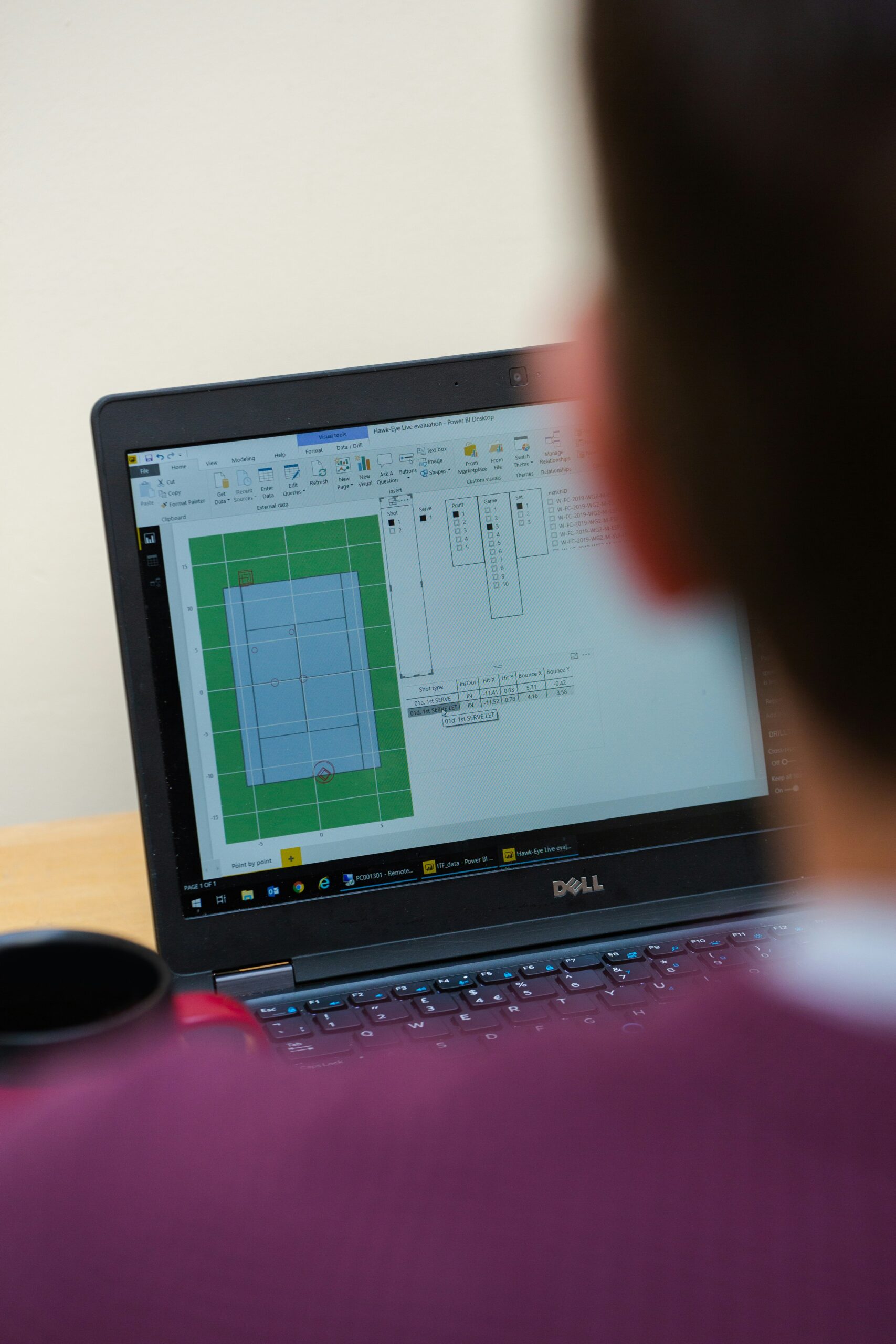Introduction to ERP Software in Manufacturing
Enterprise Resource Planning (ERP) software plays a crucial role in the modern manufacturing sector by offering a unified platform for managing various business processes. Traditionally, manufacturing operations involve multiple departments such as procurement, production, sales, and finance, which may use disparate systems. This fragmentation can lead to inefficiencies, data silos, and decreased productivity. ERP software addresses these issues by integrating all these processes into a single system, allowing for seamless data flow and communication.
The significance of ERP in manufacturing cannot be overstated. By consolidating various functions into one cohesive system, organizations can gain real-time insights into their operations. This capability improves decision-making, as stakeholders have access to accurate and timely data. Moreover, ERP systems can automate many routine tasks, freeing employees to focus on higher-value activities. For instance, inventory management, production scheduling, and order processing can all be enhanced through effective use of ERP software.
Additionally, ERP software helps manufacturers optimize their workflows and resource utilization. By providing tools for demand forecasting, capacity planning, and lead time analysis, companies can better align their production with market demands. This leads to reduced operational costs and improved responsiveness to customer needs. Furthermore, ERP systems often come equipped with reporting capabilities that enable manufacturers to track key performance indicators (KPIs), assess performance against targets, and identify areas for improvement.
In essence, having an ERP system specifically tailored for manufacturing operations is essential for organizations aiming to maintain a competitive edge in today’s dynamic marketplace. By integrating all aspects of the manufacturing process, ERP solutions not only facilitate improved operational efficiency but also enable manufacturers to respond swiftly to changes in demand, thereby enhancing overall productivity.
Key Features to Look for in Manufacturing ERP Software
When selecting an Enterprise Resource Planning (ERP) software tailored for manufacturing, it is crucial to identify specific features that cater to the unique demands of the industry. One fundamental module to consider is inventory management. This function allows manufacturers to monitor stock levels in real-time, ensuring optimal inventory turnover and reducing holding costs while preventing stockouts.
Another vital feature is production planning. An effective production planning module enables manufacturers to streamline processes by scheduling tasks, managing resources, and forecasting production needs. This ultimately leads to improved operational efficiency and better use of available resources.
Supply chain management capabilities are equally essential. An ERP that encompasses this feature enables manufacturers to oversee the entire supply chain, from procurement of raw materials to delivery of finished products. This level of oversight aids in minimizing delays, enhancing collaboration with suppliers, and improving overall product availability in the market.
Quality control is another critical aspect of manufacturing ERP systems. It should include tools for monitoring quality at various production stages, enabling manufacturers to promptly identify defects and ensure compliance with industry standards. Implementing rigorous quality control processes can significantly reduce waste and enhance customer satisfaction.
Finally, robust reporting capabilities are necessary for informed decision-making. Effective ERP systems offer customizable dashboards and analytical tools that provide insights into key performance indicators, trends, and areas for improvement. Accurate reporting allows manufacturers to respond swiftly to challenges and seize opportunities in a dynamic market.
In summary, when evaluating ERP software for manufacturing, it is essential to prioritize features such as inventory management, production planning, supply chain management, quality control, and reporting capabilities to optimize operational processes and ensure long-term success.
Benefits of Implementing ERP Software in Manufacturing
The implementation of Enterprise Resource Planning (ERP) software in the manufacturing industry is increasingly recognized for its multitude of benefits. One of the primary advantages is improved data accuracy. ERP systems centralize data from various departments, ensuring that all stakeholders access consistent and up-to-date information. This synchronization reduces errors stemming from manual data entry and outdated records, thereby enhancing overall operational efficiency.
Moreover, ERP software fosters enhanced collaboration across departments. By integrating functions such as inventory management, production planning, and financial reporting, an ERP system promotes seamless communication among various teams. This collaboration not only streamlines workflows but also ensures that all departments are aligned with the organization’s objectives, ultimately leading to improved productivity and faster response times to market changes.
Another significant benefit of ERP software is the potential for reduced operational costs. By automating routine tasks and optimizing resource allocation, manufacturers can minimize waste and improve their return on investment. Studies have shown that businesses that have integrated ERP solutions can reduce their administrative costs by up to 20%. These savings can be redirected towards innovation and growth initiatives, providing a competitive edge in the market.
Furthermore, improved decision-making is another critical advantage offered by ERP systems. With real-time access to key performance indicators and analytics, managers can make informed decisions quickly. This data-driven approach helps manufacturers adapt to fluctuating market demands and make strategic choices that drive long-term success. For instance, companies like XYZ Manufacturing have reported a 30% increase in operational efficiency after adopting ERP solutions, showcasing the transformative impact of these systems.
In conclusion, the strategic implementation of ERP software can significantly benefit manufacturing companies by improving data accuracy, fostering collaboration, reducing operational costs, and enhancing decision-making capabilities. These advantages position organizations for success in an increasingly complex and competitive market landscape.
Top ERP Software Solutions for Manufacturing in 2023
In the highly competitive landscape of manufacturing, choosing the right Enterprise Resource Planning (ERP) software is paramount for operational efficiency. As of 2023, several ERP solutions stand out, each offering unique features tailored to different manufacturing needs.
One of the leading solutions is SAP S/4HANA. This software excels in streamlining business processes with its robust analytics and real-time data processing capabilities. It is particularly suitable for large enterprises with complex project requirements. Pricing generally starts at around $3,000 per user annually, reflecting its comprehensive nature.
Oracle NetSuite emerges as another top contender, offering a cloud-based ERP solution that integrates financial management, CRM, and e-commerce functionalities. With its flexibility, it is ideal for small to medium-sized enterprises (SMEs) and also larger organizations. Pricing typically begins at approximately $999 per month, plus $99 per user, making it an accessible option for businesses at various growth stages.
Microsoft Dynamics 365 is noteworthy for its user-friendly interface and integration with other Microsoft applications. It provides excellent customization options, enabling businesses to tailor solutions to their specific needs. It serves various manufacturing sectors, including make-to-order and configure-to-order environments. Pricing can vary widely, generally starting around $190 per user per month.
Infor CloudSuite Industrial is designed specifically for manufacturing industries, offering tools for supply chain management, production planning, and quality control. This solution is particularly advantageous for manufacturers in discrete and process industries. Pricing is custom quote-based, allowing businesses to find a solution that fits their budget.
Lastly, Plex Manufacturing Cloud focuses on enhancing operational visibility and compliance through its comprehensive suite. It is particularly appealing to manufacturers in the automotive and aerospace sectors. Their pricing is also customized to meet the needs of different organizations.
This selection of ERP solutions showcases a variety of functionalities and price points, providing manufacturers with options tailored to their specific operational needs. In addition to these overviews, a comparative table is available to offer quick reference, helping businesses make informed decisions in their ERP software selection process.
Criteria for Selecting the Right ERP Software
When choosing an Enterprise Resource Planning (ERP) software, manufacturers must consider a series of critical criteria tailored to their unique operational requirements. Primarily, budget considerations play a crucial role. It is essential to evaluate not just the initial costs but also ongoing expenses such as maintenance, updates, and training. Many ERP systems come with hidden costs, so a thorough financial analysis will aid in determining the total cost of ownership over time.
Another significant factor is the scalability of the software. As businesses grow or change, their ERP systems should evolve in tandem. A scalable ERP solution allows for the addition of new functions, users, or even integration with new technologies without needing an extensive overhaul. This adaptability ensures that the selected software can meet future needs without incurring additional financial strain.
Integration capabilities with existing systems cannot be overlooked. A manufacturing entity often utilizes specialized software for various functions like inventory management, customer relationship management (CRM), and supply chain oversight. Therefore, the chosen ERP solution must seamlessly integrate with these existing systems to achieve streamlined operations while minimizing disruptions. Reviewing the types of connectors offered by the ERP vendor can significantly ease the integration process.
Vendor support is equally important in the decision-making process. Reliable technical support can mitigate downtimes and ensure smooth transitions during the implementation phase. Evaluating the vendor’s reputation, history of customer service, and availability of training resources can provide insight into the level of support one can expect.
Lastly, conducting a thorough needs assessment is vital. Engaging stakeholders from different departments to gather input on essential features and functionalities can lead to clearer criteria for evaluation. This collaborative approach establishes a promising foundation for selecting the most suitable ERP software that aligns with the operational goals of the manufacturing sector.
Implementation Challenges and Solutions
Implementing ERP software in manufacturing can pose several significant challenges. One of the most prevalent obstacles is resistance to change among employees. Often, team members may feel apprehensive about transitioning from familiar systems to a new ERP solution. This resistance can stem from fears of redundancy, a lack of understanding of the benefits, or concerns over increased workload during the transition period. To mitigate this challenge, it is crucial to foster a culture of open communication. Engaging employees through training sessions and workshops helps them understand how the new ERP system can enhance their workflow and ultimately benefit the organization as a whole.
Data migration can also present substantial hurdles during ERP implementation. Manufacturing companies often have vast amounts of data stored in legacy systems, which may not be readily compatible with the new software. This discrepancy can lead to potential data loss or corruption if not managed appropriately. To address this issue, businesses should conduct a thorough audit of their existing data before migration. Establishing a clear data mapping strategy and utilizing dedicated tools for data cleansing and transformation can facilitate smoother transitions, ensuring that critical information remains intact during the process.
Training is another critical aspect that cannot be overlooked. Insufficient training can lead to underutilization of the ERP system, negating the benefits it is designed to provide. To achieve effective training, companies should develop a comprehensive plan that includes various methods such as hands-on sessions, e-learning modules, and ongoing support. Additionally, appointing super users or champions within departments can aid in peer-led training initiatives, easing employees into the new processes. By addressing these challenges with thoughtful solutions, manufacturing organizations can enhance their chances of a successful ERP implementation, ultimately leading to improved operational efficiency and productivity.
The Future of ERP Software in the Manufacturing Industry
The landscape of ERP software in the manufacturing industry is poised for significant transformation driven by technological advancements. A key trend shaping the future of these systems is the integration of artificial intelligence (AI). AI can analyze vast datasets to identify inefficiencies, predict maintenance needs, and facilitate smarter decision-making processes. By providing manufacturers with predictive analytics, AI enhances the capability of ERP systems, allowing for improved forecasting and resource allocation.
Another major advancement is the rise of cloud computing. Cloud-based ERP solutions offer manufacturers flexibility, scalability, and accessibility that traditional on-premises systems cannot match. This technological shift not only reduces the need for extensive IT infrastructure but also enhances collaboration among teams that may be geographically dispersed. Manufacturers can access real-time data from any location, leading to more informed decision-making and accelerated response times to market changes.
Moreover, the integration of the Internet of Things (IoT) is revolutionizing ERP solutions. IoT devices generate an unprecedented amount of data that can be harnessed by ERP systems for better supply chain management and inventory control. This connectivity allows manufacturers to monitor equipment performance and track materials in real-time, paving the way for enhanced operational efficiency. As IoT adoption increases, ERP software will evolve to incorporate this data, enabling more streamlined manufacturing processes and reducing potential downtimes.
Furthermore, these innovations are expected to support greater customization and modularity in ERP solutions. As manufacturers seek systems that can adapt to their specific needs and workflows, software providers will prioritize user-friendly interfaces and customizable modules. This trend signifies a move towards more tailored solutions that suit various manufacturing environments, ensuring that ERP systems remain relevant in a rapidly changing industry.
Ultimately, the future of ERP software in the manufacturing industry looks promising. The convergence of AI, cloud technology, and IoT will drive the next generation of solutions that prioritize efficiency, flexibility, and responsiveness in an increasingly complex market.
Customer Success Stories with ERP Software
In the modern manufacturing landscape, the adoption of Enterprise Resource Planning (ERP) software has proven to be a game-changer for numerous businesses. Success stories from various manufacturers illustrate how these systems have enhanced operational efficiency, productivity, and overall profitability. One notable case is a mid-sized automotive parts manufacturer that implemented an ERP solution to streamline its supply chain processes. Prior to the transition, the company struggled with inventory discrepancies and production delays. However, after deploying the ERP system, they realized a 30% reduction in lead times and a significant decrease in excess inventory, leading to financial savings.
Similarly, a food processing company embarked on its digital transformation by integrating an ERP software tailored for the food industry. This solution provided real-time tracking of production stages, which eventually led to better compliance with health regulations and improved product quality. The result was a 25% increase in production efficiency and an enhanced ability to quickly respond to market demands, thereby boosting revenue streams significantly.
Furthermore, a textile manufacturer faced challenges with labor management and scheduling. By adopting an ERP system, they could automate employee scheduling and track labor costs in real-time. This positive change resulted in a remarkable improvement in workforce productivity, which translated into a 20% reduction in labor costs. Such instances highlight the transformative power of ERP software in optimizing manufacturing operations.
These real-life success stories not only emphasize the various benefits manufacturers have reaped from implementing ERP solutions but also serve as a testament to the software’s versatility across different manufacturing sectors. The improvements in productivity, resource allocation, and financial performance underscore the undeniable value of merging technology with manufacturing processes.
Conclusion: Making the Right ERP Choice for Your Manufacturing Business
In the dynamic landscape of manufacturing, selecting the appropriate Enterprise Resource Planning (ERP) software is paramount. The right ERP system can streamline operations, enhance productivity, and facilitate better resource management. Throughout this guide, we have examined various options, emphasizing their features and suitability for distinct manufacturing environments. This comprehensive assessment aims to equip businesses with the necessary insights to make informed decisions regarding ERP solutions.
Before making a final decision, it is essential for businesses to conduct a thorough evaluation of their unique operational needs. Different manufacturing processes, whether discrete, process, or mixed-mode, may demand varied ERP functionalities. Therefore, organizations should assess factors such as scalability, user-friendliness, customization capabilities, and integration with existing systems. Additionally, considering the long-term impact of ERP solutions on both operational efficiency and return on investment is crucial.
Moreover, choosing the right ERP software necessitates adopting a strategic approach. Engaging with stakeholders across different departments—such as finance, inventory management, and production—can provide diverse perspectives and insights. These collaborative discussions can help highlight the critical requirements and features that specifically address the challenges faced by the organization. Furthermore, prospective buyers should prioritize vendors that offer strong customer support and ensure a smooth implementation process.
Ultimately, investing time and resources into researching and selecting the right ERP system will yield significant benefits for manufacturing businesses. A well-matched ERP solution can transform operational workflows, support data-driven decision-making, and foster growth in an increasingly competitive market. As you embark on your ERP journey, remember the importance of aligning the software with your unique business objectives and operational realities to achieve enduring success.




